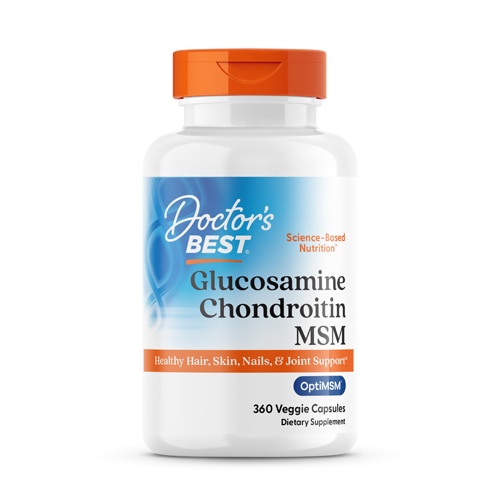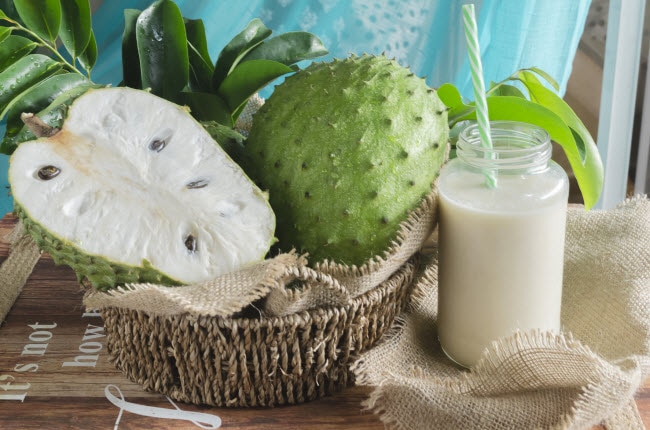A troop of dietary soldiers stand on the front lines in the battle against inflammation. They include fatty fish, olive oil, tomatoes, fruits like strawberries and blueberries, green leafy vegetables like spinach and kale, and nuts like almonds and walnuts.
However, several unsung heroes also are engaged in the anti-inflammation battle. Like olive oil and almonds, they also might help combat disorders linked to inflammation, such as arthritis, asthma, atherosclerosis, blindness and diabetes.
Here are four foods that some experts suggest you consider putting in your anti-inflammation arsenal.
1. Soursop
Chances are, soursop isn’t part of your daily diet. But given its anti-inflammatory properties, perhaps it should be.
Soursop — also known as graviola, custard apple, paw paw or corossolier — is a sweet, soft, smooth fruit that’s cultivated in tropical and subtropical regions, according to the University of Texas at El Paso. It’s long been used in traditional herbal medicine to treat ailments such as diarrhea, pain, hypertension, fever, coughs and asthma.
Today, soursop’s anti-inflammatory properties are grabbing more and more attention.
For instance, a study published in 2014 found that in tests on mice, soursop exhibited anti-inflammatory properties. Similarly, a study released in 2010 showed mice and rats gained anti-inflammatory benefits from soursop. Researchers involved in both studies stressed that further tests were needed to fully endorse soursop as an anti-inflammatory for humans.
“Soursop gets is anti-inflammatory goodness from the alkaloids, phenols and acetogenins it contains,” according to Well + Good.
Experts caution against eating too much soursop, though, as overindulging could trigger health problems. Furthermore, they warn that soursop seeds are toxic.
2. Milk
Dairy Farmers of Canada, a group representing the country’s dairy industry, points to scientific evidence indicating that rather than worsening inflammation, milk and other dairy products actually might help avoid inflammation.
Drilling down into the dairy discussion, Palmer Kippola, a certified health coach specializing in functional medicine and author of “Beat Autoimmune: The 6 Keys to Reverse Your Condition and Reclaim Your Health,” says full-fat organic milk from A2 Jersey and Guernsey cows might decrease inflammation. A2 cow’s milk contains only the A2 type of beta-casein protein.
However, the California Dairy Research Foundation notes that research demonstrating the health benefits of A2 milk “is very thin.” Any health benefits being proclaimed about A2 milk “are anecdotal and not based on credible evidence,” the foundation says.
Nonetheless, a study published in 2016 concluded that the type of gastrointestinal inflammation caused by milk containing A1 beta-casein could be avoided by drinking only A2 milk.
“Whatever milk you choose, be sure to opt for organic with no sugar added,” Kippola says. “This keeps the three invisible forces within your body — epigenetics, the microbiome and mitochondria — working to keep inflammation at bay in your body.”
3. Garlic and onions
Garlic wards off vampires, and onions might ward off anyone wanting to peck you on the cheek, but both of these foods can ward off inflammation.
Dr. Tania Elliott, an internal medicine specialist who’s a national spokeswoman for the American College of Allergy, Asthma and Immunology, says garlic and onions pack both anti-inflammatory and immune-boosting properties.
Sulfur compounds derived from garlic might lower the production of substances in the blood that encourage inflammation, according to Health magazine. Experts recommend going with raw garlic to extract the most anti-inflammatory potential.
Meanwhile, onions contain a flavonoid called quercetin that acts as an anti-inflammatory, according to the National Onion Association. For the maximum effect, choose red or yellow onions or shallots rather than the white or sweet varieties, Health magazine says.
The Arthritis Foundation touts garlic and onions as two ingredients in an anti-inflammation diet for arthritis sufferers.
4. Nonalcoholic beer
Yes, you read that correctly. Nonalcoholic beer serves up some anti-inflammatory properties.
A study published in 2012 found that among the test subjects — marathoner runners — drinking nonalcoholic beer three weeks before and two weeks after the Munich Marathon reduced postrace inflammation.
How is that possible? Researchers say that naturally occurring polyphenolic compounds in foods such as nonalcoholic beer supply robust antioxidant, antipathogenic and anti-inflammatory properties. As a result, some athletes quaff nonalcoholic beer to bounce back more quickly after exercise.




